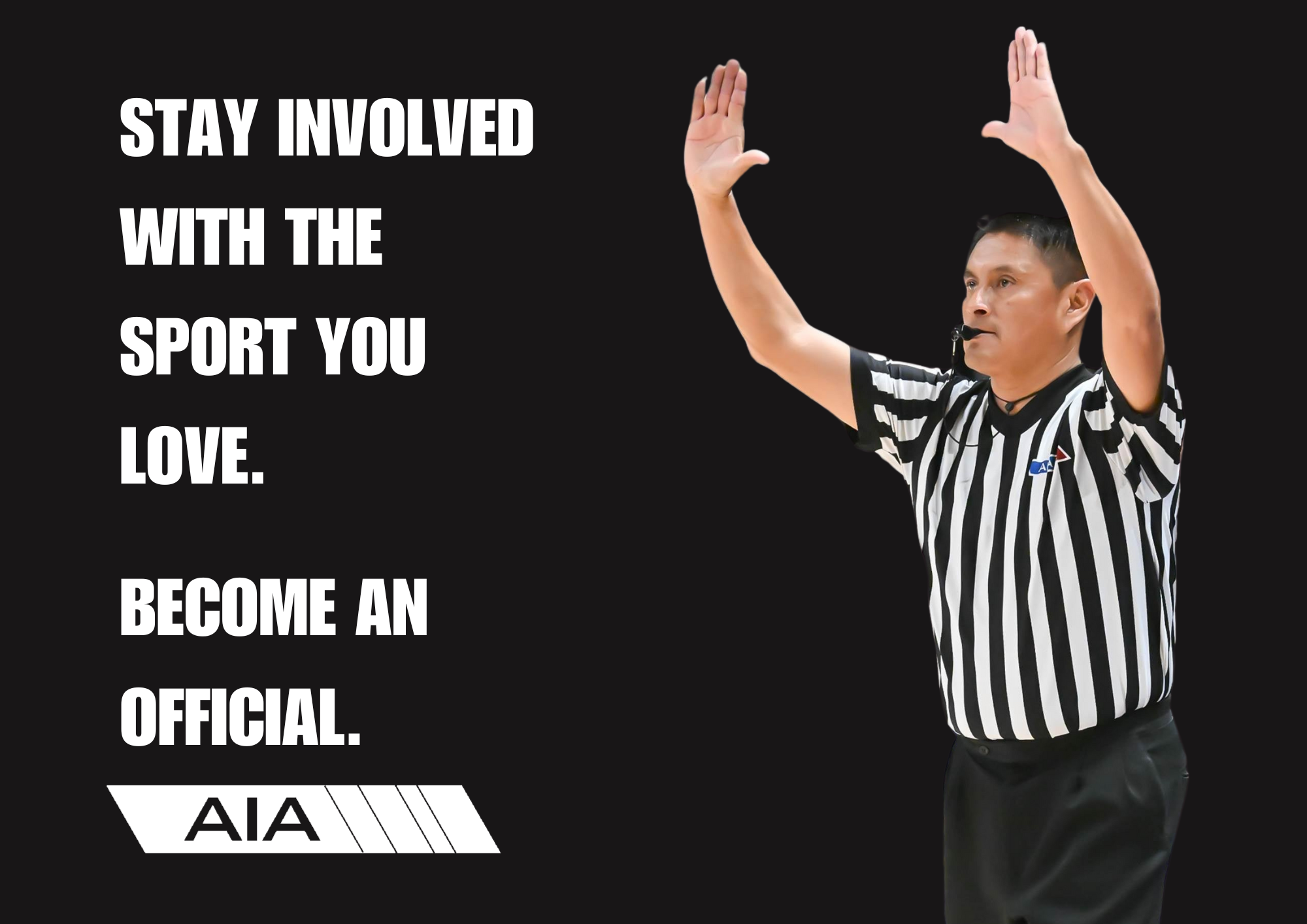How PCDS has risen to the top of the field and the classroom
May 10, 2024 by Daniel Rios, Arizona State University

Daniel Rios is an ASU Walter Cronkite School of Journalism student covering Phoenix Country Day School for AZPreps365.com.
Not every school excels in the classroom and on the field, especially at the high school level. In Paradise Valley, there is one school, who over the years has climbed its way up to the top of both.
Phoenix Country Day is known to be a top academic school. With the school being a private college prep school, academics have been a staple for the school for its entire existence. The school is ranked as the No. 1 private academic institution in Arizona. Athletics has been in the rearview mirror for a majority of the school's 63-year history.
That all changed 16 years ago.
Shane Lewis took over the athletics department at PCDS over 16 years ago. Things were a lot different back then, but Lewis knew he wanted to accomplish one thing when he got to PCDS.
Win.
“When I got here, academics is where it’s always been [up here] and athletics was here [down here],” Lewis said. “Look at your top college institutions in the country, Stanford, Northwestern and Duke. My goal was to just bring athletics up. Because I think smart kids can play sports too.”
When Lewis first got to PCDS, kids would miss practice due to academics. That has always been and will be a challenge at the school. In his first meeting with the swim team he told the team, “If you don’t go to practice, you won’t swim on Tuesday.” He did the same thing with the softball team, and after that, they all showed up and didn’t miss practice again.
The hope was for kids to strengthen their time management skills to be able to handle the work and play sports. For the overall program to get better, some changes needed to be made and it starts with the culture of how the school approaches sports.
For starters the regime before Lewis adopted a “no cut” policy when it came to the teams. Something that was a hard change, but a necessary change for Lewis to begin the culture shift needed to start giving athletics a more serious feel within the school.
“The culture here was ‘you can’t cut people, '” Lewis said. “I didn’t wanna cut, but sometimes you have to. I can’t just carry everybody.”
Lewis built a second gym to help further the athletics program and faced another challenge. A lot of his athletes would flip schools and transfer to Arcadia, Brophy and Xavier. Something he knew couldn’t happen any longer. So PCDS emphasized its middle school feeder programs and teams.
The idea is for the high school coaches to be able to coach the middle school teams to build and show that PCDS cares about athletics. A big reason Lewis lost kids 16 years ago is because parents came up to him and told him they wanted to go to a school that “cared” about sports.
Lewis is now heavily involved in two middle school leagues, The Mountain Valley Athletic League and the Cactus Christian School League. Both host two different PCDS teams that the high school coaches will coach. He made sure to switch the schedule around for certain sports and make sure his coaches were okay with coaching two separate teams and this change has made all the difference.
His administration has now put more of a value on sports. They believe that it is very important for kids to participate in extracurricular activities to make high school more enjoyable for them. With Lewis being involved with the middle school leagues, that participation has skyrocketed.
The retention rate between eighth grade and ninth grade has risen significantly because of this. With coaches being able to help coach these middle school teams, it was ensured that the culture has changed and the future of PCDS athletics is in good hands. Lewis is amazed at how successful they’ve been.
“It’s just what I've done,” Lewis said. “But I'm kind of proud of it. I think the number in the last four years, we’ve had over 50 Player of the Year winners. 50. It’s insane. Defensive player of the year, offensive player of the year, player of the year, region players of the year, conference player of the year.”
It’s not just individual success, since Lewis took over the school has won over 25 state championships and 66 region titles.
Even with all this success, there are still challenges that Lewis has to face. The athletics program has grown substantially over the years, but the school is still academics driven as it is a college prep school.
Coaches do still expect their kids to show up to practice and they do, but it is a challenge when a student's academic schedule can interfere with their sports schedule.
“People don’t like missing school around here,” Track and Field coach Matthew Hull said. “We have a problem of like, hey, we gotta get out a few minutes early for this game and it’s a constant issue. Not just an issue for the teachers, but for the kids. They don’t want to miss school.”
Lewis accomplished his goal of making PCDS a powerhouse when it comes to sports. The school is still the top private school in the state for academics, so naturally, it’s challenging for kids to balance school and sports. A reason why kids wouldn’t want to miss class. The work they’d have to do would make it hard for them.
Why is PCDS so tough academically? What exactly do they do differently from other public schools that make their curriculum a challenge for their students?
For starters, there is a big difference within their course catalog. The many different classes that are offered, you don’t find in your normal high school. The school has just about anything that a kid could be interested in, and each class is designed to be a challenge for the students.
“The whole spectrum of courses that we offer is great,” Upper school chemistry teacher Chase McVey said. “I teach general chemistry (which is required), but also three chemistry electives: advanced chemistry, biochemistry, and organic chemistry. The variety of arts classes, coding, English electives, history and current events is something I would have wanted when I was in high school.”
Curriculum wise they don’t exactly follow what public schools do either. The teachers are allowed to shape their curriculum, which can give a lot of flexibility which adds to the uniqueness of the school.
“Curriculum-wise, we are independently accredited, rather than being held to public standards,” McVey said. “That gives me a lot of flexibility in what I teach, even within a broad topic like chemistry. We have the choice of following AP curricula, or the American Chemical Society, or rearranging things entirely.”
Another aspect that makes PCDS not like any other public high school is, the kids aren’t there every day from 8 a.m. to 3 p.m. Kids pick their interests, and are assigned those types of classes. You’ll rarely see a kid in school have the same schedule as someone else.
They have a rotating block schedule which can makes it easier for kids to have time to meet with teachers during the day if they’re struggling or have to go to a game. It gives the students a more college feel and helps them build the time management skills that help them with balancing sports and athletics.
Senior Kimi Cahoon is a successful cross country and track and field runner for the PCDS Eagles and she has over 10 individual titles. She originally attended a public middle school and originally never intended to attend PCDS. After a tour of the campus with her family, she changed her mind and hasn’t looked back.
“This school has changed my life,” Cahoon said. “It’s allowed me to open up kind of on my terms, but even just academically for me. They’ve pushed me enough to make me set new goals for myself to want to push myself academically.”
The school pushes its students to be independent and self-thinkers. Cahoon says that independence has “helped” her balance her academic life with her athletic life, but the supporting cast at PCDS has played a heavy role in that balance as well.
The teachers at the school can focus more on what kids need help with. With having fewer students in classes, the teachers can focus on how to push their students in the areas that they need to succeed.
“The teachers and the support, even from the coaches, they're very understanding of the rigor you’re going through in and out of the classroom,” Cahoon said. “Having that support alongside the independence of being able to choose interesting classes and topics of interest has fostered a positive environment for me.”
Those same teachers understand that their workload is more and they expect more out of their students. Balancing getting homework done along with going to practice can be challenging for athletes. But the time management and independence she’s learned by attending the school have helped her tackle this task. The teachers are also always open to helping their students, and Cahoon said the teachers have been “really helpful” in supporting her when she needs it.
“I think having those close relationships with teachers is the best way to balance athletics and academics,” McVey said. “We empower the students to communicate with their teachers when they are going to be gone, how and when to make up for work that they miss. Having small class sizes makes this a lot easier from my end as well. It allows the students to advocate for themselves and take a more adult role in their education.”
Cahoon plans to attend the Air Force Academy to continue her athletic and academic career and she would’ve never had that school on her radar if it wasn’t for PCDS. The school believes in every student who attends and tries to get them to follow their dreams while opening their eyes to a whole new world academically and athletically.
It’s not just Cahoon who believes in the advantages of PCDS. Senior tennis player Jacques Sevrain can attest that the school cares about academics, but the teachers are their biggest fans as well.
“Both the PCDS faculty and coaches are very helpful in navigating the balancing of both sports and academics,” Sevrain said. “Not only do the teachers help by meeting with you and being clear about assignments, but they are our athletic teams’ biggest fans. As long as the students remain organized about catching up on missed work, there aren’t any challenges.”
Sevrain started attending PCDS in the lower school, and like Cahoon, he doesn’t regret that decision at all. The opportunities to succeed at the school with academics, athletics and extracurriculars, are what made Sevrain attend for so long.
Lewis is proud of where the culture has gotten to, and where the future of PCDS athletics is headed. He is adamant that the majority of the credit goes to the coaches, players and admin team to allow him to help change the culture and program when needed.
His main goal as an athletic director is to give the coaches and kids the resources needed to succeed on and off the court, which is something he’s completed up to this point.
“My goal is to help these kids enjoy their high school journeys,” Lewis said. “However, we like to win.”


